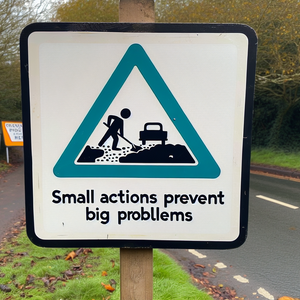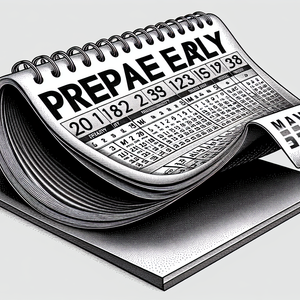Navigating the Certification Maze: Essential Steps for Traveling Medical Laboratory Scientists

Before embarking on a journey as a traveling medical laboratory scientist, it is crucial to understand the distinctions between certification and licensure. Certification is often granted by professional organizations, such as the American Society for Clinical Pathology (ASCP), and signifies that an individual has met specific educational and professional standards. In contrast, licensure is a state-mandated requirement that permits individuals to practice within that jurisdiction. Each state has its own regulations regarding licensure, which can vary widely, making it imperative for traveling MLSs to stay informed.
Step 1: Research State-Specific Requirements
The first step in navigating the certification maze is researching the specific licensure requirements of each state you plan to work in. Some states require MLSs to obtain a state license before practicing, while others may accept national certification as sufficient. Resources such as the National Council of State Boards of Nursing (NCSBN) and the health department websites of individual states can provide up-to-date information on licensure requirements. For instance, California has stringent regulations and requires laboratory personnel to hold a state-issued license, while states like Texas offer more lenient pathways for practicing MLSs. Understanding these nuances is critical to ensuring compliance and avoiding legal issues that could jeopardize your ability to work.
Step 2: Obtain Necessary Certifications
Once you have clarified the state regulations, obtaining the necessary certifications is the next step. The ASCP offers several certifications that can enhance your employability, including the Medical Laboratory Scientist (MLS) certification. Preparing for and passing the certification exam can significantly increase your job prospects, as many employers look for candidates with national certification. In addition to general MLS certification, consider obtaining specialty certifications in areas such as microbiology, blood banking, or molecular biology. These credentials can further enhance your qualifications and make you a more attractive candidate for travel positions. For example, a traveling MLS with a specialty in molecular biology may find more opportunities in research laboratories or hospitals focusing on genetic testing.
Step 3: Maintain Your Credentials While Traveling
Staying current with continuing education (CE) requirements is essential for maintaining your certifications. Many certifying bodies, including the ASCP, require a certain number of CE credits every few years. As a traveling MLS, you may need to be strategic about how you earn these credits. Online courses, webinars, and professional conferences can provide flexible options that fit your travel schedule and lifestyle. Moreover, it is critical to keep a detailed record of your CE credits, certifications, and licensure renewals. This documentation becomes invaluable when applying for jobs in different states, ensuring that you can quickly demonstrate your qualifications to potential employers. For example, having an organized portfolio of your credentials can expedite the hiring process, allowing you to secure positions more readily.
Step 4: Adapt to Varying Regulations
In addition to state-specific licensure requirements, traveling medical laboratory scientists must also adapt to varying regulations in the facilities where they work. Each hospital or laboratory may have its own protocols, quality assurance measures, and safety standards. Being flexible and open to learning new practices is vital for success in diverse environments. Establishing good communication with your supervisors and colleagues can also help ease the transition into new settings. Don't hesitate to ask questions or seek clarification on procedures—this not only demonstrates your commitment to safety and quality but also fosters teamwork. For instance, if you are accustomed to a different method of handling specimens, discussing your experiences can lead to a fruitful exchange of best practices.
Embarking on a career as a traveling medical laboratory scientist can be an incredibly rewarding experience, blending professional growth with the thrill of adventure. However, navigating the certification maze is a crucial step that requires diligence and preparation. By researching state-specific requirements, obtaining necessary certifications, maintaining credentials while on the road, and adapting to varying regulations, you can position yourself for success in this dynamic field. With the right approach, the challenges of certification can transform into opportunities for exploration and professional advancement, paving the way for a fulfilling career as a traveling medical laboratory scientist. Remember, each new location is not just a job opportunity but also a chance to broaden your horizons and make a difference in the healthcare landscape.
Clinical Laboratory Manager
Hospitals, outpatient clinics, and diagnostic laboratories
Core Responsibilities
Oversee daily operations of the clinical laboratory, ensuring compliance with quality standards and regulatory requirements.
Manage laboratory staff, providing training and performance evaluations to maintain high levels of competency and morale.
Develop and implement laboratory policies and procedures to enhance efficiency and patient safety.
Required Skills
Strong leadership and communication skills to effectively manage a diverse team.
In-depth knowledge of laboratory information systems (LIS) and regulatory compliance (e.g., CLIA, CAP).
Experience in budgeting and resource management.
Molecular Laboratory Scientist
Research institutions, hospitals with specialized labs, and biotechnology companies
Core Responsibilities
Conduct molecular diagnostic tests, including PCR, sequencing, and other genetic assays to support patient diagnosis and treatment.
Analyze test results and collaborate with healthcare providers to discuss findings and implications for patient care.
Maintain and troubleshoot complex laboratory equipment and ensure proper documentation of all procedures.
Required Skills
Proficiency in molecular biology techniques and understanding of genetic principles.
Critical thinking skills for interpreting complex data and troubleshooting issues.
Familiarity with laboratory accreditation processes and quality control measures.
Blood Bank Technologist
Hospitals, blood donation centers, and blood banks
Core Responsibilities
Perform blood typing, crossmatching, and other serological tests to ensure safe blood transfusions.
Maintain inventory of blood products and monitor expiration dates to ensure compliance with safety standards.
Participate in quality assurance programs and maintain meticulous records of all blood bank activities.
Required Skills
Strong attention to detail and accuracy in performing complex testing procedures.
Knowledge of blood banking regulations and standards from entities like the FDA and AABB.
Ability to work under pressure and make quick decisions in critical situations.
Point of Care Testing (POCT) Coordinator
Hospitals, urgent care facilities, and outpatient clinics
Core Responsibilities
Manage and oversee point of care testing programs, ensuring compliance with laboratory standards and protocols.
Train healthcare staff on the proper use of POCT devices and interpretation of test results.
Conduct regular audits and quality control assessments to ensure accuracy and reliability of POCT results.
Required Skills
Strong organizational and communication skills to liaise between laboratory staff and clinical teams.
Knowledge of various POCT technologies and their application in patient care settings.
Ability to analyze data and implement improvements based on audit findings.
Regulatory Affairs Specialist in Clinical Laboratories
Clinical laboratories, healthcare organizations, and consulting firms specializing in regulatory compliance
Core Responsibilities
Ensure laboratory compliance with federal, state, and local regulations governing clinical laboratory operations.
Prepare and submit regulatory documentation for new tests and laboratory procedures to entities like the FDA and CMS.
Monitor changes in regulations and provide guidance to laboratory management on compliance strategies.
Required Skills
Strong understanding of clinical laboratory regulations and accreditation processes.
Excellent written and verbal communication skills for clear documentation and reporting.
Detail-oriented mindset with the ability to manage multiple projects simultaneously.


